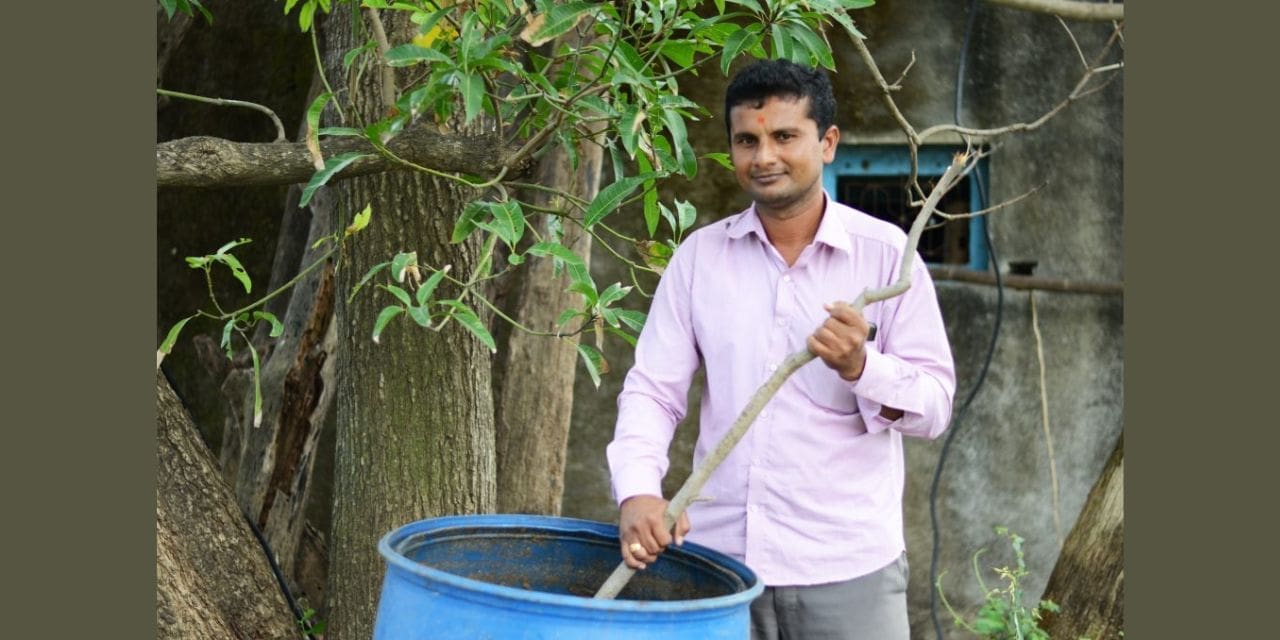- Better Cotton, Fairtrade, Rainforest Alliance and others urge governments to kickstart global phase-out of highly hazardous pesticides.
- Call made ahead of International Conference on Chemicals Management’s fifth session, set to take place in Bonn, Germany, from 25-29 September.
- Exposure to highly hazardous pesticides (HHPs) linked to severe health conditions.
- Farmers in Better Cotton’s India Programme cut highly hazardous pesticides use from 64% to 10% between 2014/15 and 2021/22 cotton seasons.
21 September, London – Better Cotton, the world’s largest cotton sustainability initiative, and its partners in the Integrated Pest Management (IPM) Coalition have issued a position paper demanding a global phase-out of highly hazardous pesticides (HHPs) across agricultural supply chains.
Ahead of the fifth session of the International Conference on Chemicals Management (ICCM5), set to take place in Bonn, Germany, from 25-29 September, Better Cotton and fellow Coalition founding members have urged authorities to enforce regulatory frameworks that would mandate the elimination of highly hazardous agrochemicals.
The Coalition – which also includes Fairtrade, Rainforest Alliance, the Sustainable Agriculture Network (SAN), and the Forest Stewardship Council (FSC) – has outlined a series of recommendations to catalyse action on HHPs in agriculture. These include:
- Committing to the global phase-out of HHPs through coordinated and time-bound actions.
- Supporting agricultural producers in their efforts to transition to sustainable agriculture practices, such as agroecology and IPM, aimed at minimising or excluding hazardous pesticide use by providing enabling policy frameworks and funding.
- Investing in research and innovation to develop and promote safer alternatives to HHPs, ensuring they are affordable and accessible to farmers worldwide.
- Promoting awareness, education programmes, and trainings to support farmers to adopt IPM practices and make informed pest control choices.
- Collaborating with governments, industry, and civil society to prevent subsidies for HHPs, and strengthen regulatory frameworks and enforcement mechanisms to ensure an effective HHP phase-out.
HHPs have historically been used to combat the threat posed by pests to cotton and other crops. Exposure to such pesticides can, however, jeopardise the health and safety of agricultural workers despite of the availability and utilisation of personal protective equipment (PPE).
Better Cotton has made significant progress in its efforts to eliminate the use of HHPs on cotton farms. In India alone, between the 2014/15 and 21/22 cotton seasons, Better Cotton Farmers cut their use of HHPs from 64% to 10%, whilst those using Monocrotophos – a pesticide classed as highly toxic by the World Health Organization – dropped from 41% to just 2%.
Across Better Cotton’s network and those of its cross-commodity partners within the Coalition – which together produce cotton, cocoa, coffee, palm oil and tea across more than 13 million hectares of land – an IPM approach has helped more than seven million farmers adopt more sustainable solutions.
As defined in Better Cotton’s Principles and Criteria (P&C), an IPM approach to cotton farming entails growing a healthy crop, preventing the build-up of pest populations, preserving and enhancing populations of beneficial organisms, field observation and managing resistance.
Trainings are provided across all countries in which Better Cotton operates to ensure cotton farmers are equipped to adopt an IPM approach and can contribute to the global phase-out of HHPs.
The IPM Coalition commends the United Nations’ Strategic Approach for International Chemicals Management (SAICM) for initiating the fifth session of the International Conference on Chemicals Management (ICCM5) which will provide an opportunity to address chemical management in accordance with the organisation’s Sustainable Development Goals (SDGs).
Alan McClay, Chief Executive Officer, Better Cotton, commented: “Only a global response to the use of highly hazardous pesticides in agricultural supply chains will ensure that farmers and their land are protected from the harmful impacts of such formulations. The IPM Coalition exists to bang the drum on this important issue and we hope authorities will join us in driving change.”

